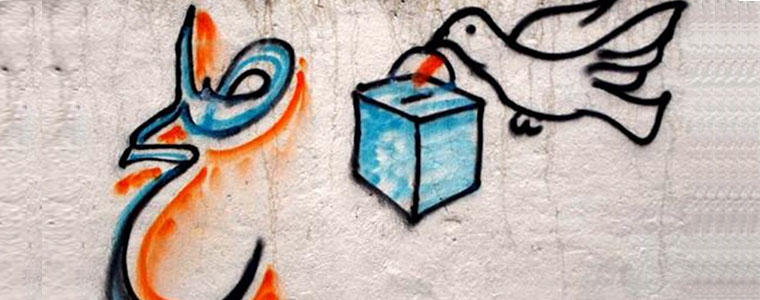Female Afghan rappers, a series of theater performances and a forum where more than 200 women challenged presidential candidates on their platforms have helped engage Afghanistan’s citizens in their country’s crucial electoral season this year as part of USIP’s Peaceful Elections Campaign.

These on-the-ground activities are a small part of the effort USIP has made to support the 2014 Afghan presidential elections. The change of presidents is only one part of a significant transition that will take place in 2014. Security responsibility has shifted from the NATO-led coalition to Afghan forces, and the number of international troops will drop significantly in the coming months, in advance of a scheduled Dec. 31 drawdown. Foreign funding also is expected to decline after a decade of economic and development support.
The presidential election would be Afghanistan’s first democratic transition of power in its history, with President Karzai, the dominant political figure of the past 12 years, unable to run again. Provincial council members also will be on the ballot.
A credible, transparent, and inclusive election will be “the single biggest opportunity to protect the tremendous achievements of the past decade and to promote the U.S. objective of a relatively stable Afghanistan,” Andrew Wilder, vice president for South and Central Asia at USIP, told the Senate Foreign Relations Committee during a hearing last year.
Since 2011, USIP has advocated that Afghanistan’s political transition, and the presidential election in particular, will be the most crucial factor in determining the country’s stability after the drawdown of international forces this year. USIP has conducted research, facilitated discussions, and raised awareness of this issue through publications, projects on the ground, events, and briefings for government officials on the importance of and need to support the political transition.
Last summer, USIP’s Kabul Office launched its Peaceful Elections Campaign in Afghanistan to raise awareness about the upcoming balloting and encourage a non-violent voting process. The campaign, which was made up of 30 projects in 17 provinces, included a forum that connected 220 women leaders in civil society with presidential candidates to discuss a broad range of issues. USIP also supported local organizations that staged a series of theatre performances in Bamyan, Kandahar, Nangahar, and Kunduz provinces, drawing audiences totaling some 35,000, including more than 10,000 women. The aim was to dramatize common election issues and encourage youth participation.
And in an Elections Anthem Contest that included female rapper Sonita among the winners, entrants produced their own songs and created music videos. The contest attracted extensive media attention, including from The Atlantic magazine and public radio in the U.S.
In Washington, USIP has hosted more than 30 public and private events about the upcoming political transition. Speakers have included former and current Afghan and U.S. government officials, United Nations representatives, journalists, civil society activists, and other experts. Event topics ranged from protecting women’s progress through the elections, to preventing electoral fraud, to the peace process with the Taliban. On April 9, USIP will host First Impressions of the Afghan Elections: Field Reports from Kabul, Analysis from Washington, a public event that will bring together experts on the Afghan elections to discuss the latest developments as well as an early analysis of results.
USIP has also hosted monthly Afghan Elections Working Group meetings with partners across U.S. government agencies and non-governmental organizations with the goal of addressing technical election issues in a timely manner. In partnership with the Center for American Progress, USIP also supported a high-level working group to highlight the importance of the 2014 political transition, and bring together experts and government officials to discuss and refine policy options. The working group was co-chaired by former U.S. National Security Adviser Stephen Hadley, now USIP’s chairman of the board, and former White House Chief of Staff John Podesta, now serving in the White House again as an adviser.
USIP has also produced more than 50 publications – from books to short papers and detailed analyses -- that incorporate a range of views and topics surrounding the political transition in general, and the elections in particular. Most recently, USIP published three Peace Briefs: “Reintegrating Armed Groups in Afghanistan,” “Last Chance: The International Community and the 2014 Afghan Elections,” and the upcoming “Why Afghanistan’s Provincial Council Elections Matter”. In the book Getting It Right in Afghanistan, USIP directors Scott Smith and Moeed Yusuf, and USIP research contractor Colin Cookman compile USIP publications that, together, comprehensively examine issues related to a potential political settlement with the Taliban -- another potential facet of the political transition.
The April 5 Presidential and Provincial Elections will be the beginning of a complicated transition for Afghanistan. But it is also an opportunity for Afghanistan to begin a new chapter, with a government of renewed legitimacy, and a transformed relationship with the international community. USIP is committed to being involved in that new chapter, and to continue working with partners to help bring peace and stability to Afghanistan.
Emily Horin is a program assistant for South and Central Asia at USIP.



